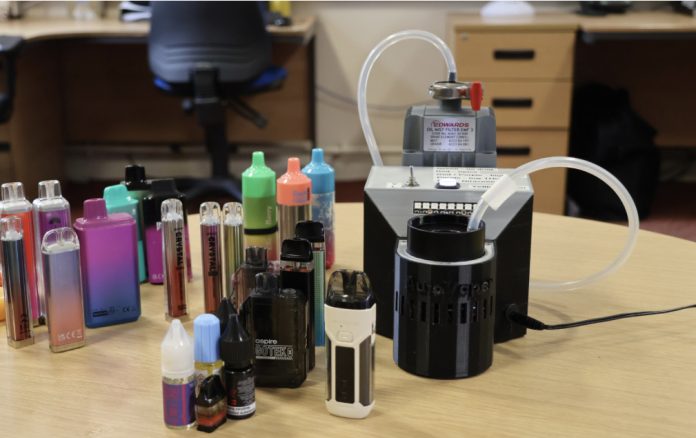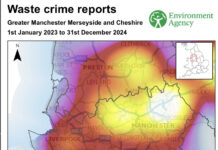Almost half of young people reported using THC vapes in 2023 – and there has been a significant increase in the use of ketamine and cocaine – according to a latest review of drug use across Greater Manchester.
The GM TRENDS report, which was commissioned by Greater Manchester Combined Authority (GMCA) and led by researchers from Manchester Metropolitan University, has been published alongside Greater Manchester Police’s new Drugs Strategy.
GM TRENDS seeks to identify changing patterns of drug use across all ten Greater Manchester local authorities, with the latest trends covering research conducted in 2023.
The report found that almost half (48%) of young people reported using THC vapes – vapes that contain the main psychoactive component of cannabis – in the past year, with more than half (54%) saying they were ‘easier to buy’ and two-fifths (39%) stating they had ‘got stronger’.
But testing revealed that many vapes being sold as THC vapes contained synthetic cannabinoids – known as spice – and those that do contain THC varied significantly in their content, ranging from 18% to 90%.
The report also highlighted an increase in the use of ketamine at a younger age, including by high school-aged children, to self-medicate anxiety and trauma, moving it away from a drug associated with clubbing.
One in six (16%) young people reported using the drug in the past year, a significant increase from 6% last year, and its multifunctional use means young people are using it more regularly, causing long term health issues including bladder, kidney and liver damage.
Other highlights of the findings from the main report include an increase in use of powdered cocaine with one in six (17%) young people reported using the drug, a significant increase of 7% in the last year, with almost half (45%) of young people stated it’s easier to buy, two-fifths (40%) saying it had ‘got stronger’ with a high average purity reported at 64% per gram.
GM TRENDS provides the region with the most comprehensive local drug intelligence function in the country with the full report identifying key drug trends for 44 substances, alongside two in-depth trend focuses on ketamine and THC vapes highlighted by the initial stages of research.
Rob Ralphs, Professor of Criminology and Social Policy at Manchester Metropolitan University, said:
“This year’s findings have highlighted the impact of recent changes to how young people consume nicotine with the shift from smoking tobacco to vaping now reflected in the way young people are choosing to use cannabis.
“Ketamine appears to be multi-functional, replacing alcohol and cannabis as a drug of choice to relax and providing the same function as prescription drugs in aiding sleep, self-medicating anxiety and trauma. It’s rapidly changing from a drug taken occasionally at weekends to more regular use. Consequently, services are beginning to see people presenting with ketamine-related bladder and kidney harms at a much younger age. We need to develop a whole system approach to address this.”
Kate Green, Deputy Mayor for Safer and Stronger Communities, said:
“In Greater Manchester, we pride ourselves on the strong partnerships we have in place to tackle issues and support communities – and there is no better example of that than the work we commission the University to carry out through their drug testing facility and the GM TRENDS report. This work provides us with invaluable, on the ground insight to help inform and shape our work such as creating policies and intervention strategies.”







